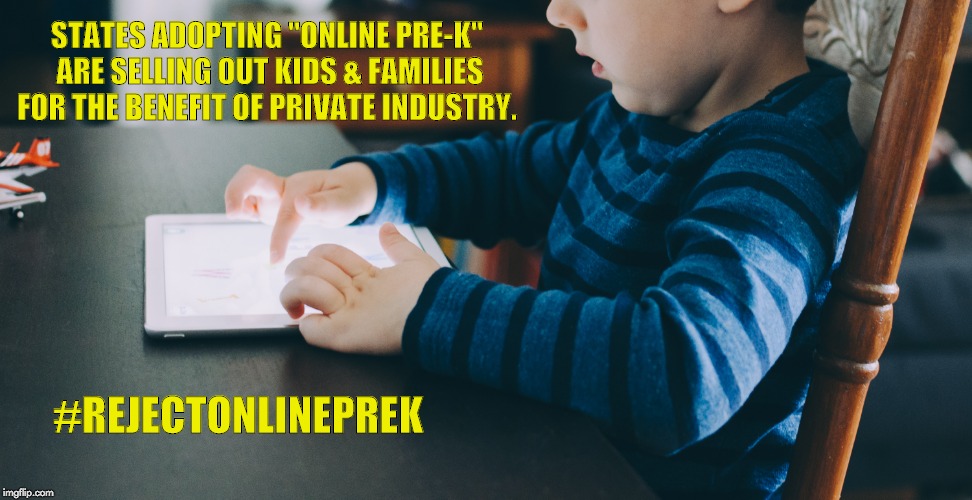
Defending the Early Years (DEY) and Campaign for a Commercial-Free Childhood (CCFC) issued a statement urging The Audacious Project, housed at TED, and designed to fund ideas for social change, to pause and listen to early childhood experts before honoring Waterford UPSTART, a Utah-based online “preschool” program. Award winners could receive millions of dollars in new funding. Last year’s award winners averaged $63 million. This grant would be a game-changer, bringing this inappropriate and harmful program to children in underserved communities across the United States.
What are alternatives to online preschool? How can foundations support kindergarten readiness? DEY suggests that charitable foundations consider one or several of these ideas:
● Establish brick-and-mortar preschools that provide opportunities for children to learn in classrooms with hands-on, play-based activities, taught by well-trained and fairly-compensated teachers. If there is concern for serving children in remote areas, consider a transportation option, such as providing buses. Note that establishing preschools could provide employment for people who live in the community.
● Support school districts that are working hard to expand high-quality preschool for four-year-olds through public school partnerships with community centers such as their local Boys and Girls Clubs.
● Support rural communities, where families are not able to access preschool due to economic and geographic challenges by expanding and investing in proven home visiting programs similar to those used by Early Head Start, Parents as Teachers, and others. In these programs, well-trained teachers visit young children and their families in their homes. These educators can help parents learn how to engage their children in developmentally appropriate activities, using low-cost, easily found materials. They can also provide developmentally appropriate toys and books, entirely underwritten. “Substantial evidence exists to support the use of home visiting as a strategy for addressing inequities in children’s health status, school readiness, and development. Pediatricians should advocate for additional research and work to define the critical elements of such programs. Pediatricians should work with policy makers to ensure that elements found to be critical for success are applied to home-visiting practice.” (AAP, 2009)
● Reach children in remote locations by developing “preschools on wheels.” The Aspen Community Foundation established such a program in 2012. Outfit mobile units such as trailers, school buses, or mobile homes as appropriate preschool classrooms, with blocks, art areas, housekeeping corners, water tables, and books. Well-trained teachers drive to where the remote children live, providing them with an opportunities for hand- on learning in a well-fitted classroom several times a week. In between visits of the preschool on wheels, parents could be instructed how to extend the learning at home.
● #RejectOnlinePrek
